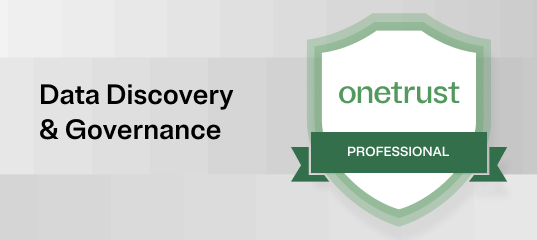For centuries, manufacturers relied on local management, on-premises infrastructures, and legacy systems to run their day-to-day operations. Data remained in silos, preventing teams from gaining any insights or value from their most valuable resource.
As supply chains become increasingly digital and dispersed across locations, manufacturers face new challenges in ensuring the protection, security, and quality of their data.
Data governance is now an industry imperative, with organizations shifting to a more data-centric approach to stay competitive.
A recent Boston Consulting Group (BCG) survey of more than 1,300 manufacturing executives revealed that 91% see data sharing and collaboration as somewhat important and 71% consider it to be significantly important.
When data is properly governed, manufacturers not only protect and secure their data they also discover new opportunities for optimization and growth.
What is data governance in the manufacturing industry?
Data governance in manufacturing refers to the internal policies and procedures that ensure the high quality, security, and usability of a manufacturer’s data. It involves establishing guidelines for how to manage data throughout its lifecycle, from creation and storage to final disposal.
Key elements to build a data governance strategy include defining roles and responsibilities, implementing data quality measures, and promoting a culture of responsibility across the organization.
Effective data governance elevates manufacturers to new levels of efficiency, scalability, and profitability. With the ability to draw insights and make data-driven decisions, manufacturers can identify opportunities to optimize inventory, improve collaboration with suppliers and distributors, and proactively improve operations.
Read this guide about the six questions to ask when building a data governance program.
What are the data governance challenges in manufacturing?
Unlike more transactional businesses, manufacturing deals with multiple moving parts, including raw materials and supplies, equipment components, and supply chain logistics. This creates a high volume of data at every step of the process — all of which needs to be governed and managed in real-time.
Due to its unique nature, effective data governance in manufacturing presents some key challenges:
Moving data out of legacy systems and silos
It’s common for manufacturing companies to use older legacy systems that weren’t designed to integrate with modern cloud-based software. As a result, manufacturers often operate through multiple systems, including inventory management, customer relationship management (CRM), and shipment tracking systems.
Integrating these disparate systems into a unified data environment can be costly and complex, especially when supply chains are spread across geographic locations. This leads to data silos where information is stored in isolated databases or systems, making it difficult to have visibility across the entire manufacturing process.
Managing high volumes of data
The average manufacturer generates high volumes and different types of data, including customer information, production orders, and shipment tracking, to name a few. This is further compounded with every supplier, distributor, and third party that’s added to the supply chain.
Without a system to validate all this data, a manufacturer can find itself with inaccurate or incomplete data. Poor data quality not only leads to operational inefficiencies and mistakes, it also hinders the organization’s growth by limiting its ability to forecast demands and plan production runs.
Establishing data ownership
Within complex manufacturing ecosystems, it can be unclear who owns data as it flows across the supply chain. Various teams generate and use different types of data, making ownership and responsibility a challenge to pin down.
For example, operation teams might oversee aspects of data related to production, while IT manages overall data security and infrastructure.
Establishing data ownership involves identifying primary stakeholders who are responsible for ensuring the quality, security, and correct use of data assets. When everyone knows their roles and responsibilities, organizations can avoid confusion and effectively leverage data for their strategic advantage.
4 data governance use cases in manufacturing
Data governance enables manufacturing companies to make the most of all the data collected throughout the supply chain. By aligning with regulations and establishing best practices and policies, a robust data governance program offers multiple manufacturing benefits.
1. Ensure industry-specific compliance
Manufacturers are subject to a long list of industry-specific regulations, spanning from quality assurance for manufactured goods to rigorous safety and privacy measures for both customers and employees. Moreover, the regulatory landscape in manufacturing is continuously evolving as new technologies emerge, societal expectations shift, and governments introduce updated standards.
Whether it’s apparel, food, or pharmaceuticals, compliance for manufacturers is a critical function that involves meticulously monitoring processes and quickly adapting to industry and market demand shifts.
2. Uncovering blind spots
Despite the clear benefits of data governance, 45% of organizations still don’t have visibility into their upstream supply chain or are only able to monitor as far as their first-tier suppliers.
This leaves the majority open to potential blind spots and operational risks, with common ones being unauthorized access to proprietary data and sensitive information, unstructured data stored in shared folders, and IP addresses in audit logs.
Data governance proactively uncovers these blind spots by implementing structured processes and controls across the entire manufacturing process. By identifying all critical data assets, manufacturers can address any blind spots and gain the visibility needed to effectively manage and secure their supply chain.
Identifying blind spots in manufacturing involves scanning various data repositories to uncover sensitive information that might be residing in unexpected locations. This includes scrutinizing shared folders, SaaS applications, audit logs, databases, and notes fields for files or data that may pose security risks if not properly handled. By uncovering and securing such information, manufacturers mitigate the risk of unintentional data exposure.
3. Implementing data retention policies
Just as products are shipped out of the warehouse when they’re finished, data should also be archived or disposed of when it’s no longer needed. In manufacturing, this includes monitoring the lifecycle of purchase orders, intellectual property and patents, or employee and customer records.
By defining and enforcing data retention policies, governance programs ensure that data is retained only for the necessary duration and in compliance with legal and regulatory requirements. Data retention is a key component of data management, and helps reduce storage costs, mitigate risks, and keeps only the most important data at the team’s fingertips.
Manufacturers aiming to transition from legacy on-premises systems to new platforms should prioritize identifying any data that needs to be archived or deleted. This is often referred to as redundant, obsolete, or trivial (ROT) data. By removing ROT data and only keeping what’s necessary, organizations decrease their data footprint and associated risk during the migration.
4. Mitigating data risks
Effective data governance is an ongoing process that monitors potential risks and protects against evolving threats. Even after a program is in place, it’s important to continuously scan for policy violations and areas where data is placed at greater risk.
For instance, discovering employee data in a public file should trigger corrective actions to revoke user access or mask the data. Or if customer payment data is inputted in the wrong field, it should send a real-time alert to correct the error and safeguard the sensitive information. Transferring data to the cloud or a consolidated data warehouse requires even greater planning to ensure all critical assets are not inadvertently exposed.
Data governance plays an important role in scanning and validating data, mitigating risks, and ensuring a secure transition as data moves along the manufacturing process.
Do you have a data governance solution in place?
In the complex ecosystem of manufacturing, data governance can provide a single source of data that helps stakeholders better understand and make more strategic decisions.
It implements data policies and processes that address specific manufacturing challenges, including dealing with high volumes of data, legacy infrastructure, and siloed systems.
An effective data governance program in manufacturing not only ensures data quality and integrity, but it also fosters a culture of ownership across teams. By prioritizing a commitment to data security, it sets a strong foundation for regulatory compliance and builds customer trust in the long run.
Forward-thinking companies want to make the most of data to become insight-driven, trusted organizations. A strong data governance strategy means that businesses have good data and that they are also smart consumers of this data. This requires a holistic approach to data policies, data quality, risk management, and business processes to create data literacy. The more data literate your organization is, the better you can use data-led insights to improve your operations and provide customers with the services and experiences they want.
Learn more about OneTrust Data Discovery tools and Data Governance by requesting a demo.


















